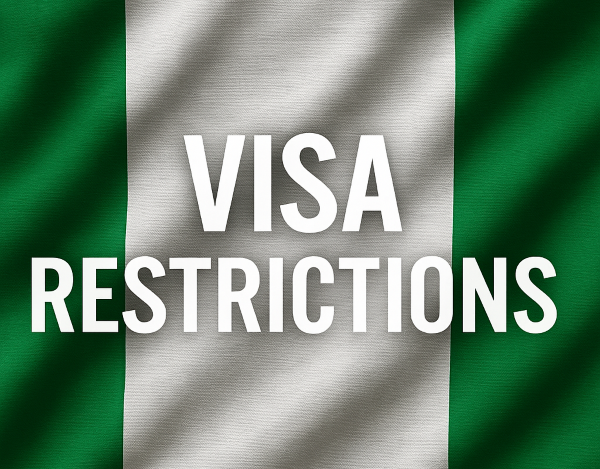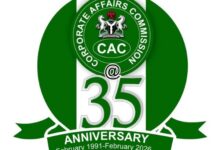
In a troubling trend that is reshaping international mobility for Africa’s largest population, Nigerians are facing increasing visa restrictions across major global destinations—including the United States, United Kingdom, Canada, the United Arab Emirates (UAE), and Saudi Arabia. The growing wave of immigration clampdowns has raised critical concerns for students, entrepreneurs, tourists, and families relying on global travel to pursue education, business, and economic opportunity.
From shortened visa durations and tighter financial requirements to outright bans and digital transformation of visa systems, recent developments point to a deteriorating perception of Nigerian travelers among immigration authorities. The root causes are complex, ranging from high visa overstay rates, documentation fraud, and national security concerns, to policy missteps by Nigerian authorities and changing domestic priorities in host nations.
U.S. Visa Duration Slashed: Fallout of Reciprocity and Trust Deficit
The most recent flashpoint is the U.S. government’s July 8, 2025 policy restricting Nigerian non-immigrant visas (B1/B2, F, and J categories) to 3 months with single entry, down from the earlier 2- and 5-year multiple-entry visas introduced under former President Muhammadu Buhari’s administration in 2023.
This policy reversal reportedly stems from a quiet move in mid-2024 by Nigeria’s current administration under President Bola Tinubu, which downgraded U.S. citizens’ visa validity to 3 months, allegedly to increase revenue through more frequent reapplications.
With U.S. visa application fees at $160, critics argue the Nigerian policy shift was driven more by fiscal desperation than strategic diplomacy—triggering a swift and predictable reciprocal response from Washington.
The backlash has been swift on both sides. Ordinary Nigerians now face higher costs, more uncertainty, and greater bureaucratic hurdles when seeking U.S. travel for education, business, or tourism. Meanwhile, investigative silence in local media and lack of explanation from Nigeria’s Ministry of Interior has further amplified frustration among citizens.
UAE Tightens Entry for Nigerians: Transit Visas Banned, $10,000 Requirement Introduced
The United Arab Emirates—once a top destination for Nigerian travelers and shoppers—has intensified its restrictions. Nigerians aged 18 to 45 are now barred from obtaining tourist visas unless traveling in a group or with family.
Those above 45 may still apply but must submit personal bank statements showing $10,000 minimum closing balance over 6 months, among other stricter requirements. Transit visas have also been banned outright.
The UAE’s clampdown follows a diplomatic row in 2022, lingering concerns over high overstay rates, and security issues. Travel agents now advise extreme caution, noting that applications not meeting the new financial and group requirements are being summarily rejected.
Canada Raises Immigration Threshold: Proof of Funds Now N17 Million
Canada, once seen as the friendliest destination for skilled Nigerian migrants, has raised its financial threshold for Express Entry applicants. As of July 7, 2025, single applicants must now show proof of N17 million (CAD $15,263) in liquid funds. Couples must show over N21 million (CAD $19,001).
While the hike is part of Canada’s annual settlement fund review, it coincides with a broader strategy to cap international student numbers and reduce temporary foreign workers to less than 5% of Canada’s population by 2027. The policy aims to curb housing shortages, manage public services, and rebalance public opinion on immigration.
Applicants failing to meet the updated fund requirements by July 28, 2025, risk being disqualified from the immigration pool.
Saudi Arabia Suspends Block Visas for Nigerians Amid Saudization Push
In June 2025, Saudi Arabia temporarily suspended blockwork visa quotas to Nigerians and six other African countries—including Egypt, Sudan, and Ethiopia. The restriction coincides with the Hajj season and is part of the Kingdom’s Saudization policy, aimed at increasing employment of Saudi nationals across core sectors like tourism.
The suspension affects both new and pending work visa applications and will remain in place until end-June 2025. Travel agents say this measure has disrupted travel plans and placed further strain on already delayed processing timelines for religious and labor visas.
UK Rolls Out Digital eVisas for Nigerians from July 15
In a more progressive move, the UK has announced a shift to digital eVisas for most Nigerian students and workers from July 15, 2025. The visa will now exist as a secure online immigration status rather than a physical sticker.
Applicants will still need to attend Visa Application Centres for biometrics, but may now keep their passports and track approvals digitally. While the change is part of the UK’s modernization effort, it also improves security, processing speed, and aligns with post-Brexit immigration reforms.
Dependants and visitors will still receive physical visa stickers for now, while full digitisation of all categories is expected in 2026.
Nigeria’s Diplomatic Posture: Too Reactive, Too Late?
The Ministry of Foreign Affairs, in response to the U.S. downgrade, released a formal protest noting that the new visa policy “places a disproportionate burden on Nigerian travelers” and fails the test of “reciprocity and mutual respect.”
While diplomatic engagements are ongoing, observers say Nigeria’s reactive approach to global policy shifts and lack of coherent immigration diplomacy are damaging its global standing and placing unnecessary burden on law-abiding citizens.
What’s Really Driving the Global Pushback Against Nigerian Travelers?
- Overstay & Documentation Fraud: Nigeria ranks high among countries with visa overstays and forged documents, raising red flags globally.
- Security Concerns: Rising concerns about migration-linked crimes, trafficking, and abuse of asylum loopholes.
- Bilateral Friction: Poor communication and lack of reciprocal respect in visa policies (e.g., U.S.-Nigeria spat).
- Economic Misalignment: Host countries adjusting policies to reduce immigration load amidst housing, job, and public service pressures.
- Digital Migration Standards: Countries like the UK and Canada are pushing for more secure, efficient, tech-driven visa regimes.
Conclusion: Nigerians Caught in the Crossfire of Global Migration Reset
As countries recalibrate immigration policies to suit domestic interests, Nigerians—especially students, SMEs, health workers, and diaspora families—are bearing the brunt of short-sighted national policies and international distrust.
Nigeria must rethink its foreign policy posture, invest in better traveler documentation and vetting systems, and rebuild global goodwill through smart, reciprocal diplomacy. Without such reforms, the visa hurdles will only grow taller—and more Nigerians will find the doors of opportunity abroad slammed shut.










